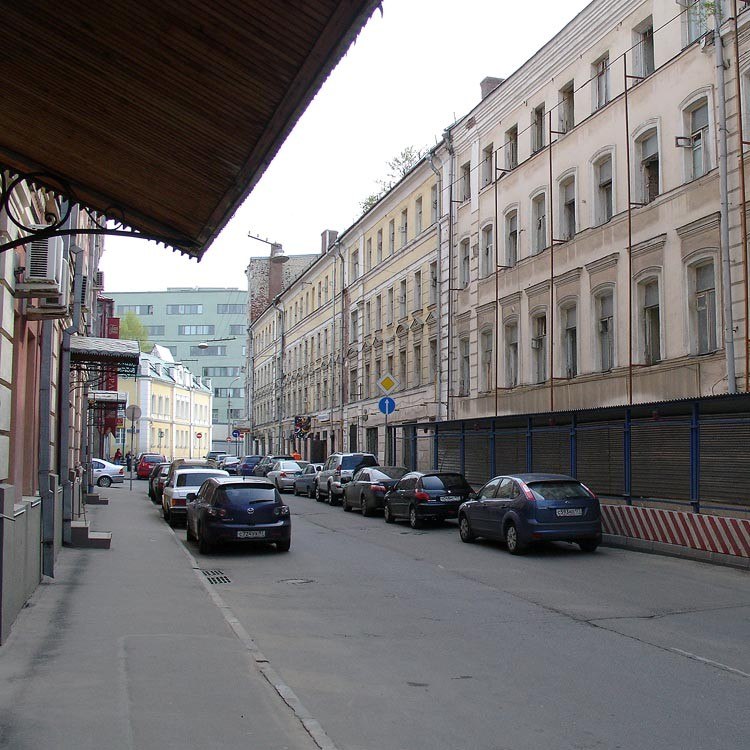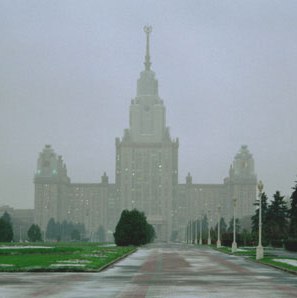Russia does not fit in traditional Western theories of political science and perhaps needs more nuanced explanations reaching beyond habitual dichotomies like “democracy–authoritarianism.” This assertion by Theodor Shanin at the opening of the 20th annual Moscow symposium, “Russia’s Pathways” (“Puti Rossii”), to a large extent framed the two-day discussion on the key issues of Russian politics and society.
Indeed, the Russian regime is authoritarian, but the elite does not want a new Stalin because they are rightfully afraid of repressions. In the meantime, there are islands of liberalism inside Russia, but liberals lack instruments to influence the authorities and thus stay ineffective.
Mark Urnov (Higher School of Economics) is one of those liberal voices that claims that Russia has to forget about great power ambitions and liberal democracy—both are unattainable. Unfortunately, even the more-or-less reform-minded Mikhail Prokhorov speaks expansionist language claiming that Russia is in a position to take Europe by “bare hands,” using Europe’s current financial troubles.
Yet Russia, as seen by Urnov, is “short of both hard and soft power. The most educated people run away. Not one Russian expat wants to come back to Russia, even for huge money. Every fifth citizen has psychological problems.”
In the Global Peace Index, Russia’s place ranks 153 out of 158 (http://www.guardian.co.uk/news/datablog/2012/jun/12/global-peace-index-2012). To make the picture even more convincing, Urnov referred to a recent study by his colleague Valeria Kasamara who conducted comparative interviews with federal and regional MPs and marginal groups in Moscow (beggars, homeless people, etc.). Surprise, surprise: their vocabularies were rated close to each other.
Not all shared such a gloomy view – an angry voice from the symposium audience accused the speaker of imposing his vision of reality. The problem is that Russia is a country of multiple realities and many interpretations of what that reality is. Instead of the promised stability we are going through an existential conflict, with a sizeable part of the population choosing to live in a state of perpetual warfare with their enemies.
This raises an understudied question of communicative languages: do different voices within Russia (wish to) understand each other? This question is sharpened by heteronomous (as philosophers would say) character of some of the most usable political concepts – in other words, they have multiple readings. Evidently, democracy has different content for the Kremlin and the opposition.
The value gap in Russian society between liberal and conservative groups is profound, but the “collective Putin” only makes this conflict more acute – and this is for the sake of tactical rather than strategic goals. For example, in the case of Pussy Riot, the purpose of the Kremlin was to construct what the political philosopher Ernesto Laclau would have called a chain of negatively marked equivalences: feminism – liberalism – anti-Putin protestors – imposition of maligning “Western values.” Olga Zdravomyslova (the Gorbachev Foundation) assumed that the aggressiveness infused in to the public space by the opponents of Pussy Riot was obviously excessive, and, to some extent, the Kremlin lost its control over the political effects of enmity and hatred deliberately unleashed by it.
Yet Russia’s troubles are part of a wider picture. Most post-Soviet countries failed to produce sustainable identities based on successful models of development. Take Georgia for example, where there were many hopes for Saakashvili’s reformist project but it lost its momentum and is being reconsidered both within Georgia and in the West. Armenia and Azerbaijan are stuck in a deadly conflict over a small piece of territory. Belarus is successfully milking Russia, pretending to move forward in integrationist projects. Ukraine seems incapable of getting out of its geopolitical deadlock and finding a foundation for an authentic identity. In Andrey Riabov’s (IMEMO, Moscow) view, most post-Soviet identities are empty in terms of their positive content, and usually are constructed on the basis of enmity against Others. To this, I would add that the figure of Putin himself is politically empty as well, and all of his attempts to appeal to ideological markers are not more than projects.
One of these projects is Eurasian integration. The political geographer Dmitry Oreshkin raised the important issue of how expensive for the Russian budget the integrative plans are. In his calculation, Russia had invested in Belarus about $60 billion and received almost nothing. Sergey Kulik (INSOR thinktank) added that overall Russian expenses for Eurasian Union partners are close to $100 billion. One can’t but wonder whether Moscow’s integrationist strategy is indeed rational and pragmatic, as the Kremlin insists. This question must be further debated, especially against the background of evidently underinvested territories within Russia itself – a situation that is degrades the internal coherence of the country.
Foreign policy problems don’t stop here. Russia’s deficit of communication with the West is enormous. Germany, for example, reduces the level of partnership for modernization and corporations gradually narrow their interests with Russia. And, what is even more astonishing, the Kremlin fails to understand what became clear months ago – Germany (and the EU) will be much tougher on Cyprus than on Greece exactly because Berlin has no intentions of saving Russian capital in this troublesome “off-shore” island.
The major impression in the aftermath of the symposium is that the liberal voices within the Russian academic community are rather strong. Liberals are unhappy with the domestic repressions and the growing dissociation of Russia from the West. Even if their views cannot gain sufficient political influence (so far), they constitute an important segment of Russian academia.
Andrey Makarychev is a Guest Professor at the Free University of Berlin, blogging for PONARS Eurasia on the Russia-EU neighborhood.










